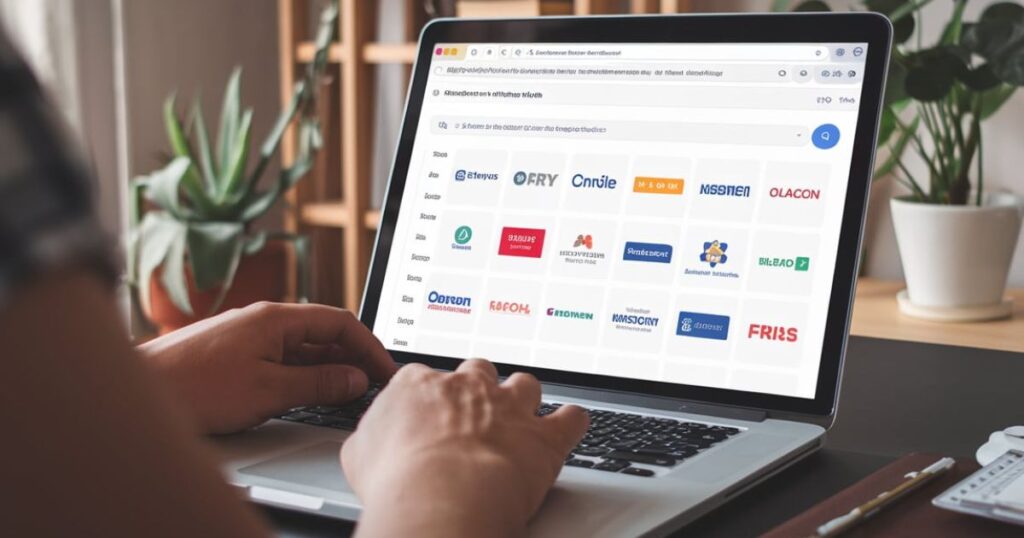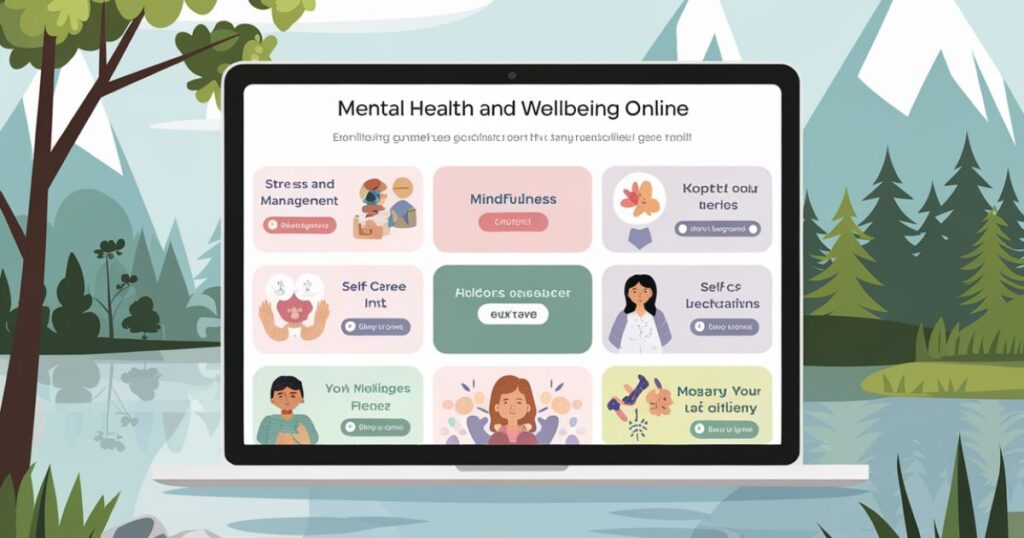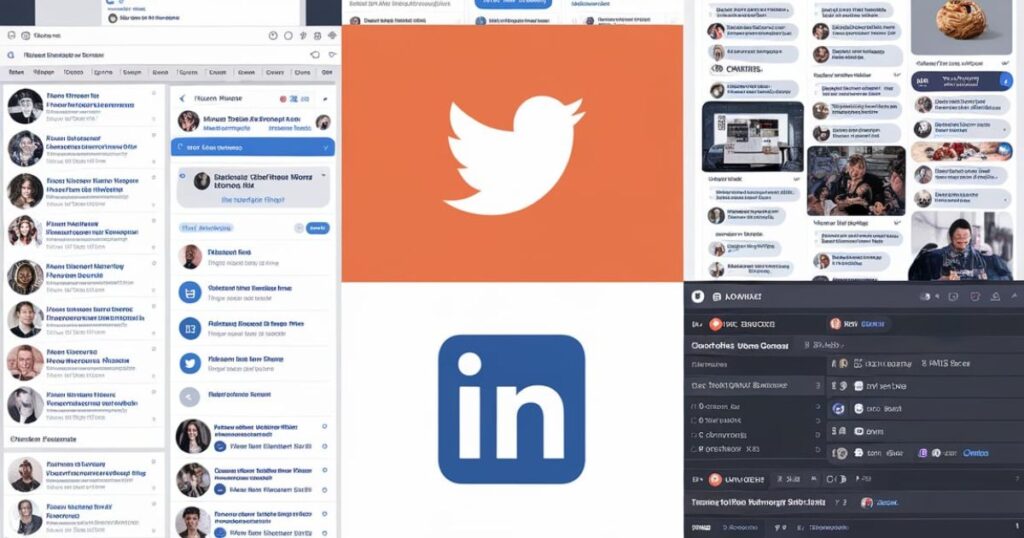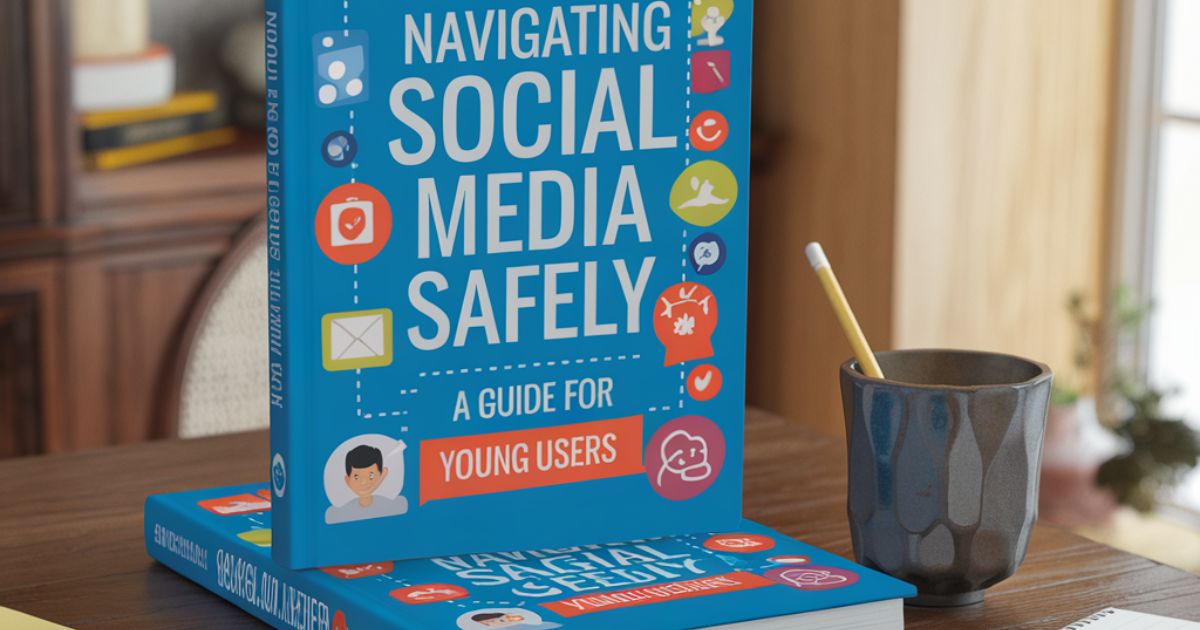In today’s digital landscape, social media has become an integral part of our lives, especially for young people.
While platforms like Instagram, TikTok, and Snapchat offer exciting opportunities to connect, learn, and express oneself, they also come with potential risks.
This comprehensive guide aims to help young social media enthusiasts navigate online spaces safely and responsibly, ensuring a positive and enriching experience.
Understanding Online Safety Basics
Protecting Personal Information
Your personal information is a valuable asset – guard it carefully online. Here are some key tips to keep your data secure:
- Use strong, unique passwords for each account. Consider using a reputable password manager to help.
- Be cautious about sharing private details like your address, phone number, or school name.
- Think twice before posting photos that reveal your location or daily routines.
- Regularly review and delete old posts or photos that might contain sensitive information.
Recognizing Red Flags in Online Interactions
Not everyone online has good intentions. Be alert for these warning signs when interacting with others:
- Requests for personal information or money, even if the person claims it’s for an emergency.
- Pressure to meet in person or move communication off-platform to a more private channel.
- Excessive flattery or attempts to isolate you from friends and family.
- Inconsistencies in their stories or reluctance to video chat or share recent photos.
“If something seems too good to be true online, it probably is. Trust your instincts.” – Internet Safety Expert
The Importance of Privacy Settings
Take control of your online presence by mastering privacy settings:
Regularly review and update privacy settings on all platforms you use.
Limit who can see your posts and personal information – consider making accounts private.
Be aware of what information apps can access on your devices and revoke unnecessary permissions.
Use two-factor authentication whenever possible for an extra layer of security.
Finding Reputable Online Communities

When looking for online spaces to connect with others who share your interests, prioritize safety and legitimacy.
Researching Platform Reputations
Before joining any online community:
- Read reviews from trusted sources like Common Sense Media or reputable tech blogs.
- Check if the platform has been involved in any major security breaches or controversies.
- Look for transparency about ownership, data handling practices, and moderation policies.
- See if the platform is recommended by educational institutions or youth organizations.
Clear Community Guidelines and Moderation
Reputable online spaces should have:
- Easily accessible community guidelines that clearly outline acceptable behavior.
- Active moderation to enforce rules and address violations promptly.
- Clear processes for reporting inappropriate behavior or content.
- Resources for users who may need support or assistance.
Verifying Professional Networking Opportunities
For career-focused platforms or communities:
- Research the organization behind the platform. Are they well-known in the industry?
- Look for endorsements from reputable companies or educational institutions.
- Be wary of promises that seem too good to be true, like guaranteed job placements or unrealistic salaries.
- Check if they have a physical address and legitimate contact information.
Mental Health and Wellbeing Online

Social media can have significant impacts on mental health. It’s crucial to approach it mindfully and prioritize your wellbeing.
Also Read: Brandon Burlsworth Mom Net Worth,Age,Height and Weight
Recognizing Reliable Mental Health Resources
Not all online mental health support is created equal. Here’s how to find trustworthy resources:
- Look for resources backed by licensed mental health professionals or reputable organizations.
- Be cautious of peer advice on serious mental health issues – while support is valuable, it’s not a substitute for professional help.
- Check credentials of anyone offering online therapy or counseling. Are they licensed in your state or country?
- Verify that any mental health apps or websites you use have strong privacy policies to protect your sensitive information.
The Limits of Peer Support
While connecting with others who share similar experiences can be helpful:
- Peer support is not a substitute for professional help, especially for serious mental health concerns.
- Be cautious about taking medical advice from non-professionals online.
- Know when to seek offline, professional support for mental health concerns. If you’re struggling, talk to a trusted adult or contact a mental health hotline.
Maintaining a Healthy Balance
Social media shouldn’t dominate your life. Here are strategies to maintain balance:
Set time limits for social media use. Many devices now have built-in screen time tracking tools.
Engage in offline activities and nurture in-person relationships.
Practice digital detoxes regularly – try a “no phone” day once a week or month.
Curate your feed to focus on positive, uplifting content that aligns with your values and interests.
Building Genuine Connections Safely
Online friendships can be meaningful and enriching, but it’s important to approach them carefully.
Forming New Friendships
When connecting with new people online:
- Take time to get to know someone before sharing personal details. Don’t rush into deep emotional connections.
- Be wary of those who push for rapid emotional intimacy or share overly personal information too quickly.
- Trust your instincts – if something feels off, it probably is. Don’t be afraid to distance yourself from uncomfortable situations.
- Look for consistency in their behavior and stories over time.
Engaging Responsibly
Healthy online interactions involve:
- Respecting others’ boundaries and privacy. Don’t share someone else’s personal information without permission.
- Communicating clearly and kindly. Remember there’s a real person behind every screen.
- Standing up against bullying or harassment (safely). Report abusive behavior to platform moderators.
- Being mindful of your own digital footprint. Think before you post or comment.
Meeting Online Friends In Person
If you decide to meet an online friend in real life:
Inform a trusted adult or friend about your plans. Share details of where you’re going and who you’re meeting.
Meet in a public place during daytime. Choose a busy location like a cafe or mall.
Have a safety plan in case you feel uncomfortable. This could include a code word to text a friend if you need help.
Trust your gut. If anything feels off, don’t hesitate to leave and get to a safe place.
Learning and Growing Through Online Communities

Social media can be a powerful tool for personal and professional development when used wisely.
Finding Valuable Educational Resources
Look for:
- Webinars and online courses from reputable institutions or industry experts.
- Industry-specific groups moderated by professionals in the field.
- Fact-checked information from reliable sources like academic institutions or established news outlets.
- Educational YouTube channels or podcasts with positive reviews and clear sources for their information.
Participating in Virtual Events
When joining online events:
- Verify the credentials of hosts and speakers. Are they recognized experts in their field?
- Be cautious about sharing personal information during public Q&As or chat sessions.
- Take notes and follow up on resources shared. Many events offer recordings or slides you can review later.
- Engage actively by asking thoughtful questions, but remember to protect your privacy.
Networking and Skill Development
Social media can boost your career prospects:
Join professional groups related to your interests or career goals.
Engage thoughtfully in discussions, showing your knowledge and curiosity.
Share your own knowledge and experiences (while maintaining privacy).
Follow industry leaders and companies you admire to stay updated on trends and opportunities.
Staying Informed and Critical

Developing media literacy is crucial in the digital age, where misinformation can spread rapidly.
Evaluating Information Sources
Before sharing or acting on information:
- Check the source’s credibility. Is it a reputable news outlet or known expert in the field?
- Look for multiple, reputable sources confirming the same information.
- Be wary of sensationalized headlines or emotionally charged content designed to provoke outrage.
- Check the date of publication – old news articles sometimes resurface as if they’re current events.
Recognizing Misinformation and Manipulation
Be alert for:
- Claims that seem too good (or bad) to be true. If it’s shocking, it requires extra verification.
- Pressure to share information quickly without fact-checking. Misinformation often spreads through urgency.
- Content that plays on fears or biases. Be especially critical of information that aligns too perfectly with your existing beliefs.
- Manipulated images or videos. Learn about deep fakes and how to spot them.
Developing Media Literacy Skills
Enhance your ability to navigate online information:
Question what you read and see. Who created this content and why?
Learn about different types of media bias and how they can influence reporting.
Practice fact-checking techniques. Websites like Snopes or FactCheck.org can be helpful resources.
Diversify your news sources to get a balanced perspective on current events.
Also Read: B88221141: The TikTok Sensation Taking America by Storm
FAQ’s
Is it safe to use my real name on social media?
It’s generally safer to use a pseudonym, especially on public platforms. Reserve your real name for professional networking sites if needed.
How can I tell if an online community is trustworthy?
Look for clear guidelines, active moderation, positive user reviews, and transparency about who runs the community.
What should I do if I encounter bullying or harassment online?
Document the behavior, block the person if possible, report it to the platform, and reach out to a trusted adult for support.
How can I protect my privacy while still engaging on social media?
Use privacy settings, be selective about what you share, and regularly audit your online presence.
Is it okay to join online groups focused on mental health or sensitive topics?
While these groups can offer support, be cautious. Ensure they’re moderated, don’t share deeply personal information, and seek professional help for serious concerns.
Conclusion
Navigating social media as a young user can be exciting and rewarding when done safely. By prioritizing your privacy, thinking critically about online interactions, and maintaining a healthy balance between online and offline life, you can make the most of these platforms while protecting your wellbeing.
Remember, your safety and mental health should always come first. If you ever feel uncomfortable or unsure about an online situation, don’t hesitate to step back and seek help from a trusted adult or professional. With awareness and caution, you can enjoy the benefits of social media while avoiding its pitfalls.
Explore the latest news and insights from Echozynth and beyond at Echozynth.com

Kiara Arushi is the dedicated admin of this personal website, which serves as a comprehensive hub for general information across various topics. With a keen eye for detail and a passion for knowledge sharing, Kiara curates content that is both informative and engaging, catering to a diverse audience.
Her commitment to providing accurate and up-to-date information ensures that visitors find valuable insights and practical tips in every post. Whether you’re seeking the latest trends or timeless advice, Kiara’s expertise makes this site a trusted resource for all.


